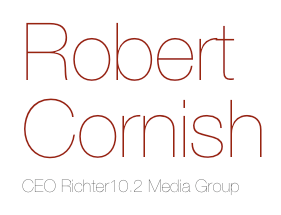As a recap, we looked at Facebook and Twitter in part 1, carefully looking at the advantages and disadvantages of using these mediums to establish relationships with potential clients and leads.
Next we'll go into some of the lesser known, but still large, social networks that offer something uniquely different for salespeople in particular.
3) Google
Yes, Google (especially Gmail) is a social network that is constantly growing. The merging of email and the Google search engine behemoth was definitely welcome among a huge segment of professionals with over 350 million active users at the beginning of 2012.
The extension of this growing network into Google Plus doesn't hurt their reach either. Like Facebook and Twitter, many people have Gmail accounts, and these are the people your sales team is looking to connect with. One of the huge advantages of this jack-of-all-trades social network is, in fact, it's ability to provide tools for almost any online experience.
Want to contact a potential client? Gmail. Want to follow up in a casual way? Google Plus. Want to share a document without cramping their inbox? Google Docs. Google is a safe haven for salespeople looking to reach their clients professionally and politely for almost any type of situation.
4) LinkedIn
Some people forget that LinkedIn has been around for quite a while, quietly building its network and reputation as the "professional" version of Facebook (even though it launched a year before) and has transitioned from being known as a job search engine to a full-fledged hub for professional networking.
The beauty of these online resumes is that salespeople are able to do ample research on their prospects before initiating contact. They can also pay to use InMail, which allows them to message their prospects not connected to them. In return, potential clients can look at your profile and make a more informed judgment call on whether or not they want to respond to you, giving you a better shot at starting the relationship.
Thanks to the groups function, sharing information with a huge number of people makes gathering new leads and reaches even easier. Posting articles and starting discussions on different LinkedIn groups has the potential to get your name out there among the targets you actually want to reach. In a way, LinkedIn is the ultimate cold-calling social network.
5) Skype
Last is Skype, the authority on video messaging. If your company isn't already using Skype to some degree, you are really missing out on one of the best ways to communicate internally and externally. Although Skype is not very effective when trying to find new prospects, it is very useful in communicating with a prospect with some clout. The instant messaging features on top of video messaging make it easy for you to close deals faster by communicating more directly without pestering the client.
In conclusion, all of these networks have their disadvantages for creating and sustaining relationships with your prospects. Careful use and practice, however, will help your sales team accurately utilize these networks to their full potential.
Jon Negroni is the Director of Public Relations, Promotion, and Marketing at Richter10.2 Media Group. For more information regarding Richter10.2, check out our introduction video here.











